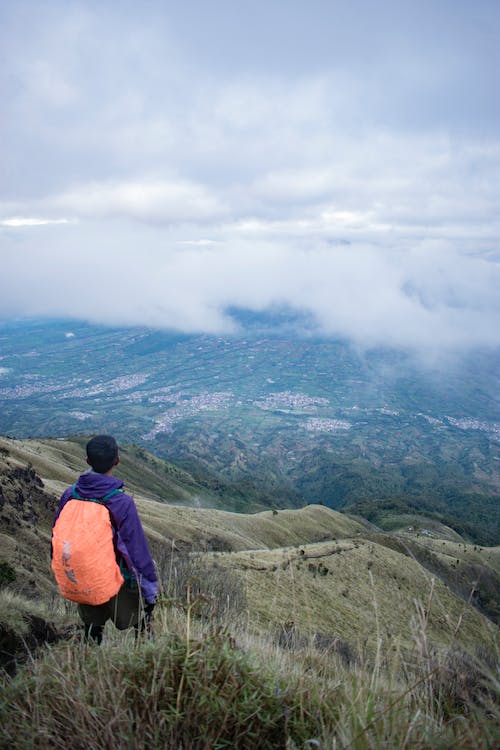“It’s important for Black folks to go birding because it’s an opportunity for us to connect to nature in a more intimate way — to engage, to heal, to build community, to combat the stereotypes and misconceptions that we don’t get outside, and that we don’t enjoy the outdoors,” says Black in National Parks Week founder Nicole Jackson.
For Black people, bird watching is about more than getting outside. Being Black and forming a relationship with the outdoors is a way to reclaim our relationship with the land. But Black birders haven’t always been treated well.
On May 25, 2020, Christian Cooper went bird watching in Central Park, only to have the police called on him by a white woman. The racial profiling of Christian Cooper inspired Black birders across the country to come together to create Black Birders Week. This year from May 28 to June 3, the week honors and uplifts Black outdoor enthusiasts and birders alike.
As Black Birders Week comes to a close, Black birders share more about their passion, experiences, and hopes for their fellow Black naturists.
Haley Scott
Haley Scott is no birding newbie. As an environmental science major at the University of Vermont, she took classes about birding. Vermont’s population is 94% white, and she was the only person of color in the two bird watching classes she took. Her second birding class, Birding to Change the World, gave her the opportunity to mentor students and teach them about wildlife in after-school programs. Scott, who identifies as Jamaican, Native American, and Puerto Rican, has not always felt welcome in outdoor spaces.
“Sometimes when you’re bird watching with a group of white people, you feel internally isolated,” Scott says.
In 2021, Scott led bird walks with organizations like Latino Outdoors and Outdoor Afro. The Bronx native says it’s important for Black folks to get outdoors and engage in activities like birding.
“The outdoors brings me joy. It’s therapeutic. When I am outside bird watching all of my stress and anxiety goes to the back of my brain,” says Scott.
Indigo Goodson
Indigo Goodson started bird watching regularly in 2020 after she was laid off. Learning about Christian Cooper and the incident in Central Park was her first time hearing of a Black person bird watching. A friend bought her a pair of binoculars and they went to the park together.
Within a matter of months, she was reading books about birding and heading outside more frequently. She went birding every day in January 2021. Still, the Brooklyn resident doesn’t come across many other Black women birding.
The self-described “out loud birder” believes that representation outdoors matters. She wants Black people to know that birding is for people from all walks of life — and that includes us.
“It’s often an exposure issue and we don’t see each other doing it. How do we know it’s safe? It’s about safety and community. It’s another level of comfort,” says Goodson.
Dexter Patterson
Dexter Patterson, known as Wiscobirder on social media, is all about Black joy. His Twitter and Instagram accounts highlight the pleasures that come with birding. Patterson exudes joy in his upbeat tone and passion for spotting new species.
In June 2021, Patterson and Dr. Jeff Galligan founded The BIPOC Birding Club of Wisconsin to make birding more inclusive in Madison, Wisconsin, and beyond. Patterson’s been birding for 13 years, which was partially inspired by a family legacy. His grandfather was an avid birder.
“My grandpa’s binoculars were my first pair of binoculars,” he tells Word In Black.
He started birding in his early 20s and hasn’t stopped since.
“People always ask me, ‘What do I need to do to be a birder? I don’t have binoculars or a fancy camera. I don’t really know what I’m looking at,’” he says. “And I’m like, ‘That’s all fine. You don’t have to be a pro. Just pay attention.’”
Nicole Jackson
Nicole Jackson has been birding for 15 years and still does at least three times a week. Jackson became interested in birding during an internship at The Ohio State University, where she monitored northern cardinals.
In 2020, a group of Black bird watchers, herpetologists, nature enthusiasts, communicators, scientists, and engineers started talking in a GroupMe chat. What started as a few ideas turned into a concrete outcome: Black AF in STEM.
Now the organization hosts Black Birders Week. Although Jackson did not found Black AF in STEM, she is one of the original organizers. When asked what birding around other Black folks has done in her life, her response was powerful.
“I felt more connected. I felt more safe,” Jackson says. “I felt more validated in the things that I was interested in, especially with regards to the outdoors and certain activities we classify as white activities, realizing that I can do those things too and be just as happy.”


